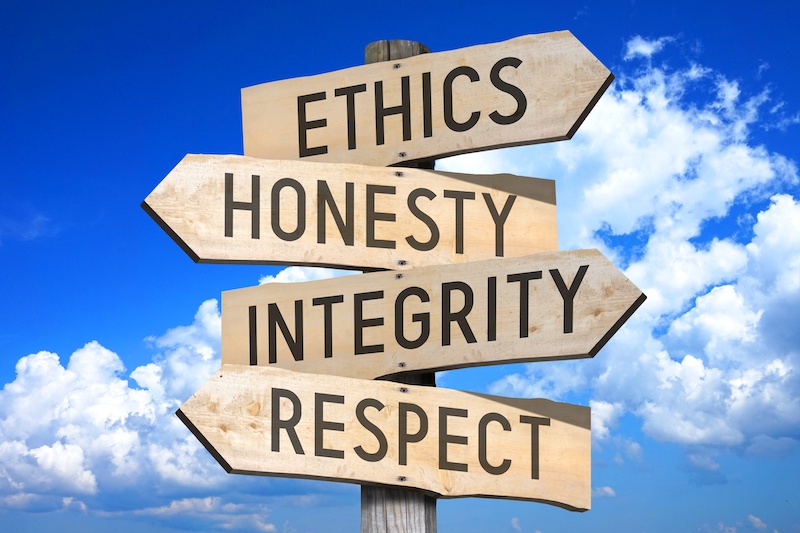Brutal Honesty Vs. Speaking Your Truth With Compassion

What does it mean when someone describes themselves as “brutally honest?” It’s not as simple as many people think.
The idea of brutal honesty has been placed in a positive light in today’s world. Perhaps because of the word “honesty.” Because honesty is a good thing, right? Of course, it is.
We all agree that it’s important to be honest and truthful. But, in reality, the truth often hurts.
Many times in our lives we are faced with situations in which we need to share a message that may hurt the recipient. And there are many possible ways to manage those situations.
Brutal Honesty
Declaring yourself brutally honest is perhaps the easiest way around the “truth/hurt” quandary. It’s essentially a free pass to say what you think or what you feel in the moment you think it or feel it.
Chances are high that you know someone like this, who goes through life unfiltered:
You’re the most thoughtless person I know, Marcy says to her husband Edward.
What made you buy that coat? Jenny says to her friend Lori.
Only an unintelligent person would make that argument, Bill says to his colleague.
Looks like you’ve been eating a few too many cheeseburgers, Grandma Bea says to her grandson.
The upside of brutal honesty is that you seldom have to guess what the brutally honest person is thinking. The downside is that you don’t always want to know what the brutally honest person is thinking.
Brutal honesty hurts people. Long after the “honest one” has had his say, the recipient will be suffering the damages.
There is another way to deal with the conundrums of life. It involves no potshots, far less damage to the recipient, and far less hurt all around. Yet it still communicates the necessary message. It’s called Truth With Compassion.
Truth With Compassion
Truth with compassion is a way to express your truth while reducing its hurtfulness as much as possible. Hurting others immediately and automatically sparks their defenses. And once the defenses come up, you’ve lost their open ear. They will no longer hear you.
3 Steps to Speak Your Truth With Compassion
1. Clarify your message within yourself before saying anything to the other person
Example: Marcy’s You’re the most thoughtless person I know becomes: You should have checked with me before taking on that giant project at work.
2. Think about the personality and nature of your recipient. How emotionally fragile is he? How will he best hear this message?
Example: Marcy knows that Edward is normally a thoughtful person, but that he is also somewhat of a workaholic. When he’s absorbed in his work, he tends to think of nothing but the job.
3. Identify the best time, place, and words to communicate your message
Example: Marcy tells Edward she has something important to talk with him about. They agree to talk when they both get home from work. Marcy says I’m hurt that you took on this big project when I hardly get to see you as it is. Did you think about me at all when you made this commitment?
By wording her truth this way, Marcy is avoiding a common barrier to communicating difficult truths: she is not sparking Edward’s defenses. Starting with “I’m hurt,” is a good way to let the recipient know that you are talking about yourself, not him. Asking a question is a good way to open a discussion without making an accusing assumption.
While Jenny and Grandma Bea should keep their “honesty” to themselves, Bill should use a question with his colleague instead of such a blunt and shaming declaration.
Why do you think that?
What makes you say that?
Have you thought about…..?
All of these are possible ways to express doubts about a colleague’s argument. They will not spark the recipient’s defenses, and they will not hurt his feelings. Nor will they likely damage the relationship.
So speak your truth. It’s important. Express yourself and be honest. But pause first to think about the other person. Filter, filter, filter. When you respect the other person’s feelings, your message will be far more likely to be heard.
To learn much more about the importance of speaking your truth and how to show compassion for the other person, plus how to share emotions in relationships, see the book Running On Empty No More: Transform Your Relationships
To learn more about Childhood Emotional Neglect, see my first book Running on Empty.
